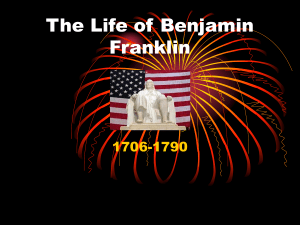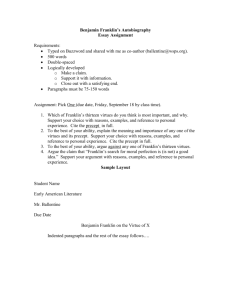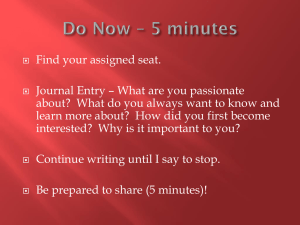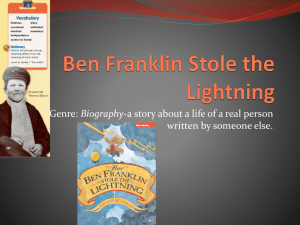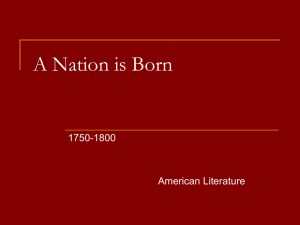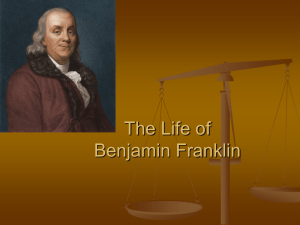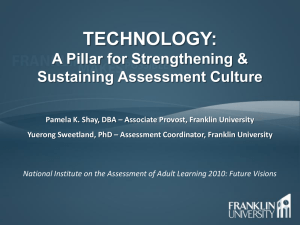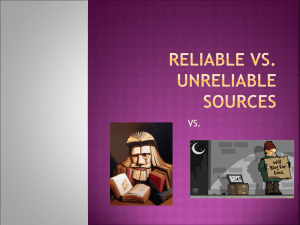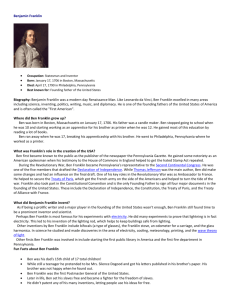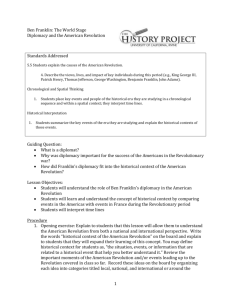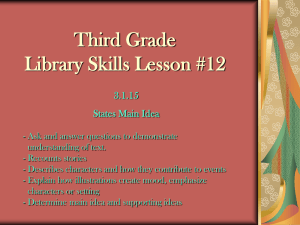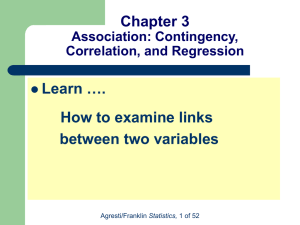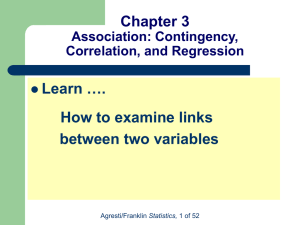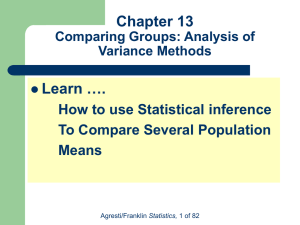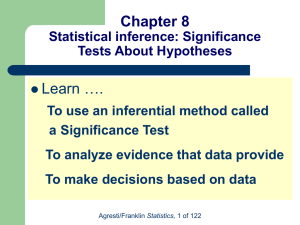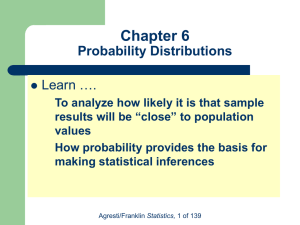Franklin`s Autobiography
advertisement
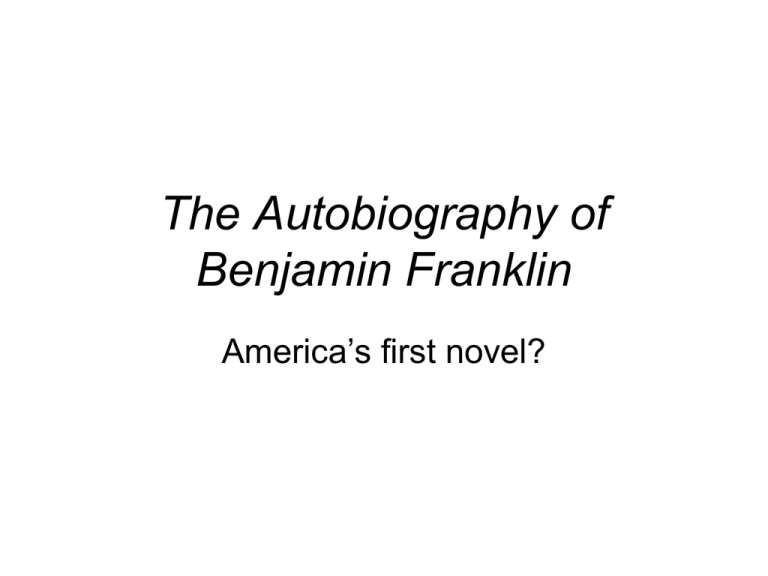
The Autobiography of Benjamin Franklin America’s first novel? In Your Notebook… • On more than one occasion, Franklin has been referred to as “The First American.” Obviously this is not factually accurate, though there is a certain metaphorical truth to it. Based on what you’ve read so far, what qualities does the young Franklin display that make him seem so representative of “American-ness”? AUDIENCE • Before we can truly appreciate Franklin’s message(s), we have to consider his audience… (opening para.) • To whom is he writing? • Also, consider when he wrote this… Purpose • What is Franklin’s stated purpose in writing this autobiography? • Might there be another, less-obvious intention on his part? • Again, when did he write this? • (opening paragraph) Tone • How would you describe the tone, or style, of his narration? • “Having emerged from the poverty…”(193) • “I had risen gradually from the middle…”(195) • “Socratic method” (197) • “I have been more particular…”(201) • New Word: didactic Tone • • • • WHAT he tells us / HOW he tells it How does he come across? How does he want to come across? Is he deliberately “shaping” the events of his life paint a particular picture? • Old Ben writing about Young Ben? “Method”: The Franklin Way “About this time I met with an odd volume of The Spectator…”(196). What does he want to do? How does he go about doing it? What is the end result? What is his purpose for including this passage? Oh that Ben… • Can we trust that Franklin is telling us the whole truth, and nothing but the truth? Where might a skeptical reader suspect that Franklin is consciously shaping a character? How and Why? • purpose(s)? – rhetorical strategy Deism vs. “Revelation” • How might Franklin’s encounter with books on “Deism” help us understand the larger shift away from Puritanism of the 17th century and towards the Enlightenment values of the “Age of Reason”? – What conclusions does he reach? – What becomes most important to him? “Moral Perfection” • What would his Puritan ancestors likely think about Franklin’s quest for moral perfection? – Tone? – How would they feel about the virtues themselves? • Which would Winthrop or Bradford would object to? Thirteen Virtues • Look over Franklin’s virtues and schedule; what in here still holds value in contemporary American life? – What in our world is a descendent of Franklin’s method and virtues? – Does his schedule remind you of anything? “The Art of Virtue” and “Moral Algebra” • How is virtue similar to an art, and why should it be practiced as one does the arts? • What are the common practices and behaviors? • What is “moral algebra,” and what is its intended purpose? Is it effective? (listen to this link) “Benjamin Franklin Drawing Down Electricity from the Sky” (Benjamin West, ca. 1816) “A Man of the Times” • Think about all of Franklin’s contributions to American ideas, innovations, and institutions… – To what Enlightenment values and beliefs do these seem related? – What effect does he hope these will contributions have on society?

